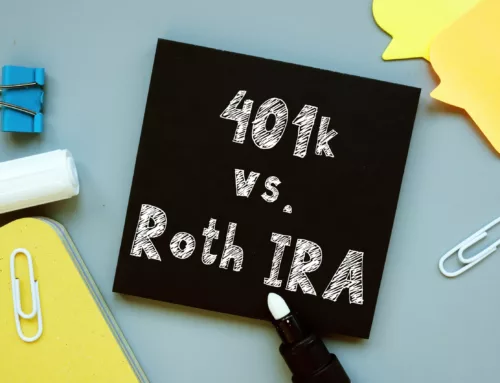Top 4 Student-Friendly Credit Cards – Get Cash-Back Rewards And Discounts
These top student credit cards are an excellent financial tool for college students looking to establish credit. They are a type of unsecured credit card specifically designed for those attending college, which means you won’t need to provide any security deposit.
What Are the Benefits and Drawbacks of Student Credit Cards?
Student credit cards offer many perks and rewards, such as cash-back bonuses and exclusive student discounts. However, it’s important to keep in mind that student cards also come with higher interest rates and lower credit limits than traditional cards. So they need to be used responsibly. When students use student credit cards effectively by paying off the full balance each month and keeping within their spending limit, they can enjoy the benefits of these cards while also helping to build their financial future.
How Are Student Credit Cards Used?
Some college students charge small purchases like their morning coffee each day — purchases they know they can pay back at the end of the month. Then they make payments on time and get cash back or other student rewards, and start building credit.
However, credit cards can also be used to cover costs associated with school supplies and books, making them useful tools for college expenses. With the high costs of attending college, students can benefit from financial relief in the form of delayed payments that credit cards offer.
The main thing is that these cards can help students establish good practices early on and set them up for future financial success.
How Can They Hurt?
On the flip side, student credit cards don’t always produce the desired outcome. If you’re not responsible, you can land yourself in some serious debt. As we stated above, student credit cards often have higher interest rates. So if you don’t make your payments on time, you might end up digging yourself into a hole of debt — and that’s the last thing you need as a young person just starting out.
But, in general, they can only hurt if the user is irresponsible. Otherwise, student credit cards are a great idea for building credit and getting rewards. So what are some of the top ones?
Top Student Credit Cards
Discover It Student Cash Back
The Discover It Student Cash Back card is perfect for first-timers. Most students with no credit are approved. To apply, you simply need to be a U.S. citizen who is enrolled in a two- or four-year university program.
Here’s why this card is worth it:
- Discover offers a dollar-for-dollar match of all the cash back you earn at the end of your first year
- You’ll get 5% cash back on everyday purchases, including grocery stores and dining out
- You can apply your rewards points to Amazon.com checkouts
- You won’t have to pay any annual fee (this is true for most student cards)
In general, Discover is a great starter credit card — but even more so for students. Once you graduate, Discover will upgrade your student card to a standard one.
Additionally, this card offers 0% APR for six months as an intro offer. But be careful: After that, rates jump up to the range of 17.24% — 26.24%. Students can get into trouble if they’re not serious about making on-time payments.
CapitalOne Quicksilver Rewards for Students
The CapitalOne Quicksilver Rewards for Students card is another fantastic option for students with little to no credit. This card offers 1.5% cash back on every purchase.
The company indicates that your credit level should be “Fair” when you apply for this card. New card members are given a one-time $50 bonus for signing up. This card also has no annual fee and is exclusively designed for college and university students. CapitalOne Quicksilver is especially attractive if you’re planning to go abroad during your time at university. That’s because this card has no foreign transaction fees outside the U.S.
Chase Freedom Student Card
The Chase Freedom Student card is a great starter. New card members will receive a $50 bonus for signing up, a $20 good-standing reward at each account anniversary, and 1% cash back on all purchases.
Additionally, you’ll be able to check your credit score for free on the Chase app without penalties. You’ll also be eligible for a credit increase after paying your bills on time for five consecutive months.
This card does apply a 3% foreign transaction fee to purchases made outside of the United States, so you’ll want to leave it at home when you study abroad!
Bank of America Customized Cash Rewards for Students
The Bank of America Customized Cash Rewards for Students is a unique card. Unlike other student cards, it’s customizable in that it offers a whopping 3% cash back in a category of your choice. These categories could be gas, online shopping, dining, travel, and more.
You’ll also receive 2% back on grocery stores and wholesale clubs and 1% back on all other purchases. Bank of America will reward you with $200 after you spend $1,000 on this card within 90 days of account opening. This card has one of the best APR intro offers at 0% for your first 18 months!
All of these features and more make the Bank of America Customized Cash Rewards for Students card one of the most attractive currently on the market. To boot, all of this comes with no annual fee.
Frequently Asked Questions About Student Credit Cards
Are Student Credit Cards Free?
It is important to note that while these cards may offer perks and rewards, they are not technically free. Interest rates will apply, so it’s important to compare the terms of use before you decide which one is right for you. You also need to be sure that you have enough cash flow to manage the repayments and fees associated with your student card.
Do Student Credit Cards Help Build Credit?
Yes. Student credit cards can be a great tool for college students to start their credit history. Because there are often no or low requirements, they can offer an easy way for students to responsibly build up their credit scores.
What Age Should a Student Get a Credit Card?
Starting college is an exciting time in a person’s life, and with it comes increased responsibility. One of those responsibilities is to make sound decisions about financial matters, which is why students need to consider getting their first credit card at 18 when they begin college. With a credit card comes greater access to funds, as well as the opportunity to build credit and practice responsible money management skills. This can be a great learning tool when you are starting out on your own.








